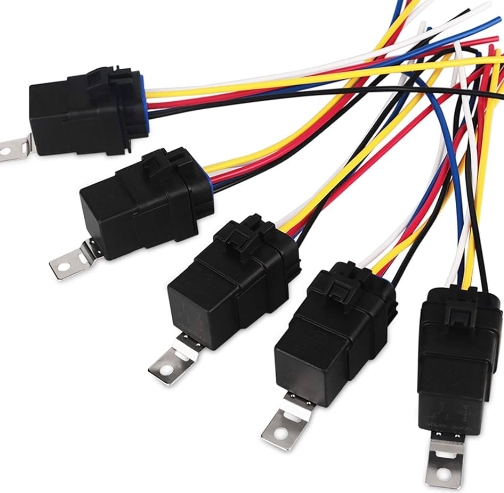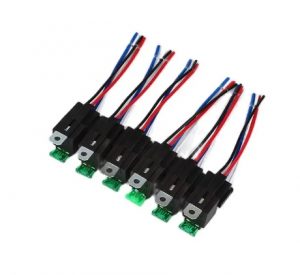
In the realm of electrical circuits, relays play a pivotal role in ensuring smooth and efficient operation. These small yet powerful devices act as control switches, allowing the flow of current to be regulated and directed. From industrial automation to everyday household appliances, relays are essential components that enable the functioning of various electrical systems. In this article, we will delve into the importance of relays in circuits, exploring their key functions, benefits, and applications.
- Reliable Control and Switching Mechanism:
Relays serve as reliable control switches, allowing the activation or deactivation of electrical circuits. By utilizing an electromagnetic coil and mechanical contacts, relays can effectively control the flow of current, ensuring the safe and efficient operation of electrical devices. This switching mechanism is crucial in preventing electrical overload, short circuits, and other potential hazards. - Electrical Isolation and Protection:
One of the primary advantages of using relays in circuits is their ability to provide electrical isolation and protection. By acting as an intermediary between the control circuit and the load circuit, relays ensure that any faults or malfunctions in the load circuit do not affect the control circuit. This isolation prevents damage to sensitive control components and enhances the overall safety of the system. - Amplification and Signal Conditioning:
Relays also play a vital role in amplifying and conditioning electrical signals. In certain applications, weak or low-power signals need to be amplified before they can control larger loads or devices. Relays can effectively amplify these signals, enabling them to control higher currents or voltages. Additionally, relays can condition signals by converting them to the required form or level, ensuring compatibility between different components within a circuit. - Versatility and Adaptability:
Relays are highly versatile components that can be customized to suit specific circuit requirements. They are available in various types, such as electromechanical relays, solid-state relays, and reed relays, each offering unique advantages and characteristics. This versatility allows engineers and designers to select the most suitable relay for their specific application, ensuring optimal performance and reliability. - Wide Range of Applications:
The importance of relays extends across a wide range of industries and applications. From automotive systems and telecommunications to power distribution and industrial automation, relays are found in numerous devices and systems. They are used in motor control, lighting control, HVAC systems, safety circuits, and much more. The ability of relays to handle high currents, withstand harsh environments, and provide precise control makes them indispensable in various sectors.
Conclusion:
In conclusion, relays are vital components in electrical circuits, offering reliable control, electrical isolation, amplification, and adaptability. Their importance lies in their ability to ensure the safe and efficient operation of electrical systems across diverse industries. By understanding the crucial role of relays and their benefits, engineers and designers can make informed decisions when selecting and integrating relays into their circuits, ultimately enhancing performance, reliability, and safety. Embracing the power of relays is key to unlocking the full potential of electrical systems in today's technologically advanced world.


